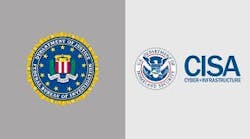Las Vegas became a focal point of the country's first post-Sept. 11 terrorism trial in 2003 when a videotape of Strip hotel-casinos surfaced at the home of suspected terrorists in Detroit.
Public disclosure of the tape a year before the trial triggered intense squabbling between federal officials in Michigan and Nevada who disagreed about whether the tapes represented a threat to Las Vegas.
An unrelated but similar tape linked to an accused terrorist in Madrid added to speculation that terrorists might want to attack Strip resorts.
The significance of the tapes and the fact that they were shot about five years before their discovery were nearly lost amid the finger-pointing.
Were the tapes harmless tourist videos or potential tools of terrorism? And, if they were the latter, should the public have been warned about a threat to Las Vegas?
A federal prosecutor and FBI agent in Michigan felt the Detroit tape, discovered during a raid shortly after Sept. 11, 2001, showed terrorists casing the MGM Grand and other locations, including Disneyland.
At a U.S. Senate Finance Committee hearing, Detroit federal prosecutor Richard Convertino testified that voices on the Detroit tape referred to Las Vegas "as the city of Satan and spoke of Las Vegas as a prime target for attack because of the heavy tourist population."
Convertino and FBI agents in Detroit said warnings to their counterparts in Las Vegas were ignored out of concern that the tapes would hurt local tourism, an allegation that local authorities vehemently denied.
In the end, the Detroit tape was discredited publicly after convictions against three Michigan defendants were overturned based on allegations of prosecutorial misconduct by Convertino.
Convertino has filed a federal lawsuit in an attempt to clear his name.
Last fall, the Syrian-born Spaniard linked to the Madrid tape was acquitted of charges that he helped to plan the 9/11 attacks. The tape he had of Las Vegas casinos also showed footage of the World Trade Center.
Today, authorities tend to dismiss the Detroit tape as harmless tourist video, but they have a more nuanced view of the Madrid tape.
Larry Mefford, the FBI's former head of counterterrorism who now runs security at Wynn Las Vegas, said the Madrid tape was "probably as close to a surveillance tape as you'll get."
Mike McClary, the Metropolitan Police Department's homeland security chief, said he "took very seriously" portions of the Madrid tape after a belated translation of the audio on the tape revealed possible threats against hotels in Las Vegas.
But the jury is still out on the significance of the tape, McClary said.
"A tape can be seen by a dozen different people who come up with a dozen different opinions," McClary said. "In my mind, I can't say with any degree of confidence one way or the other" what the significance of the Madrid tape is.
review-journal


